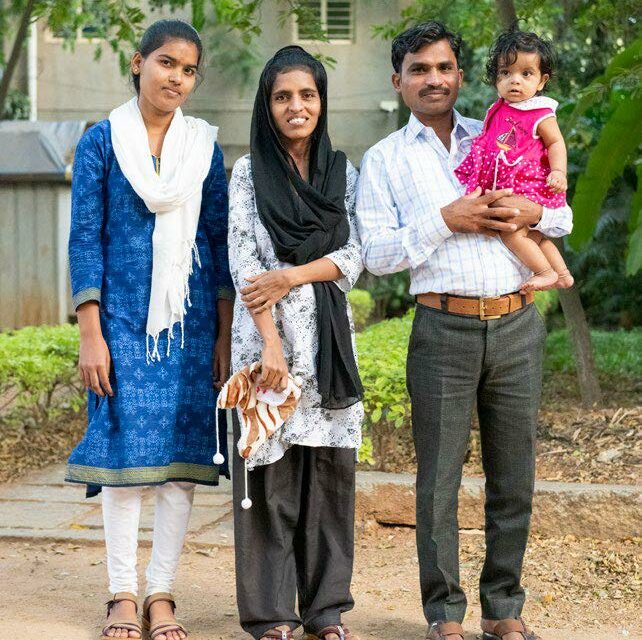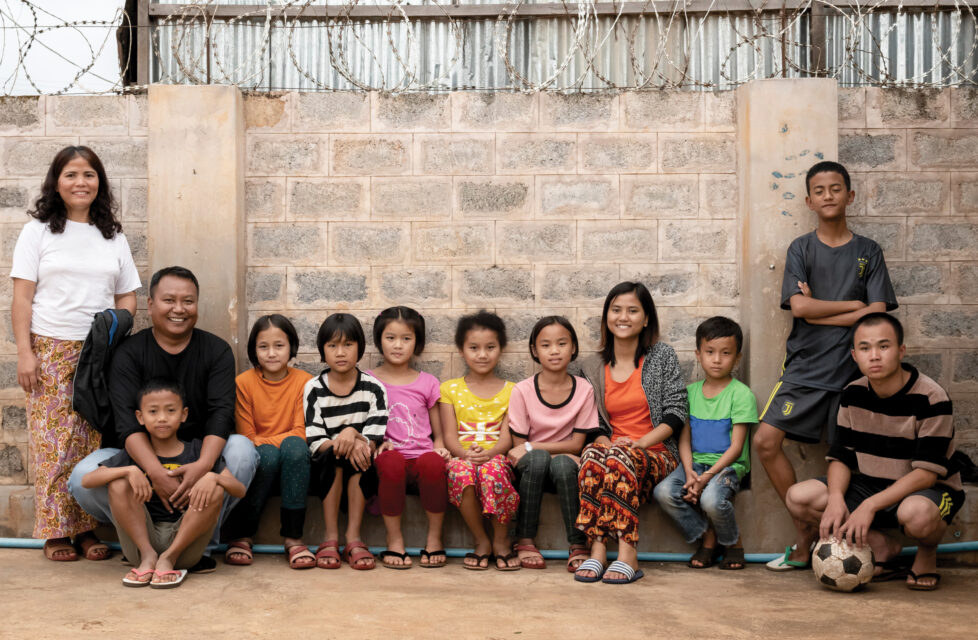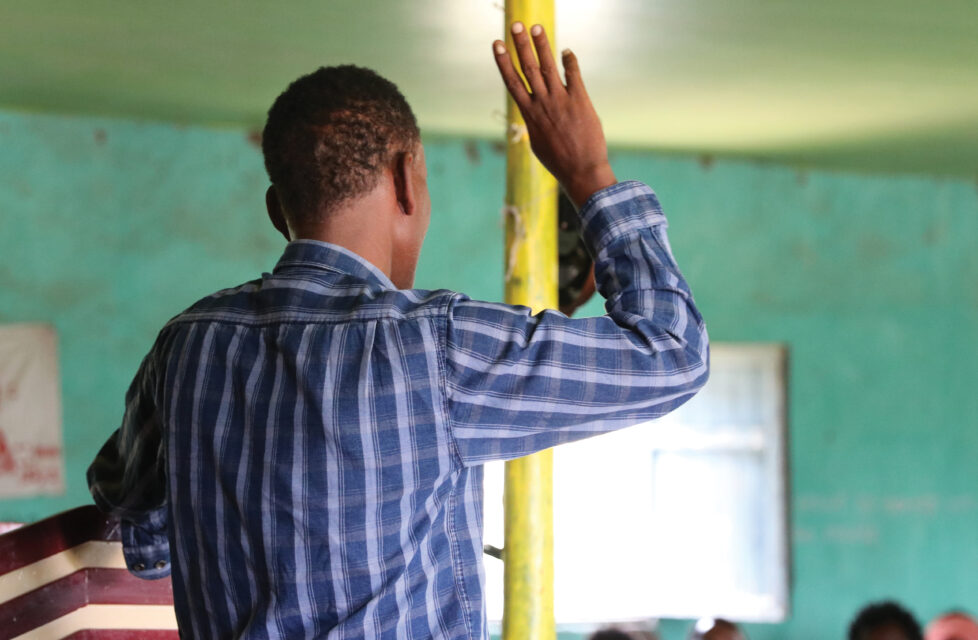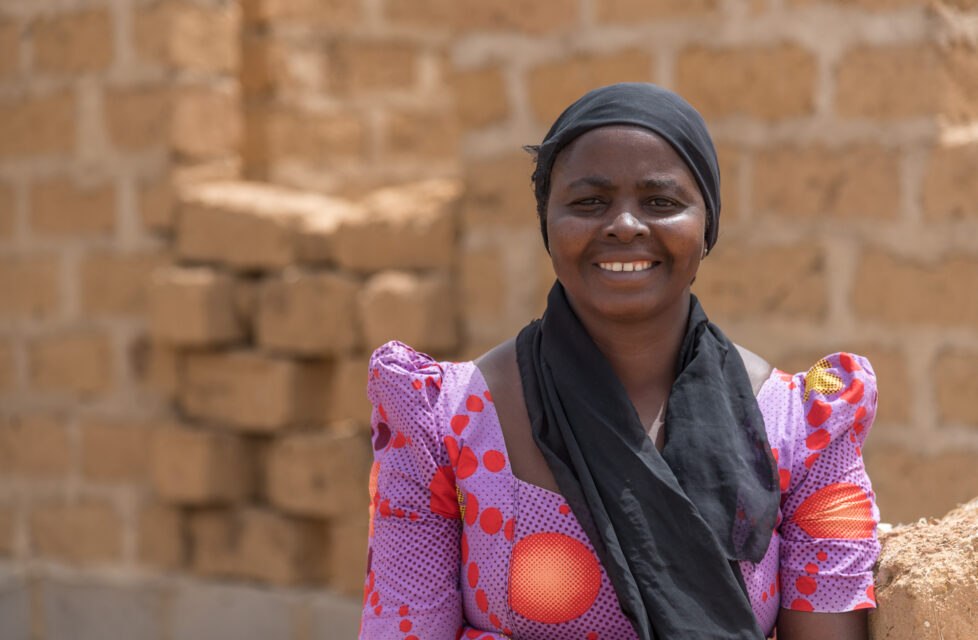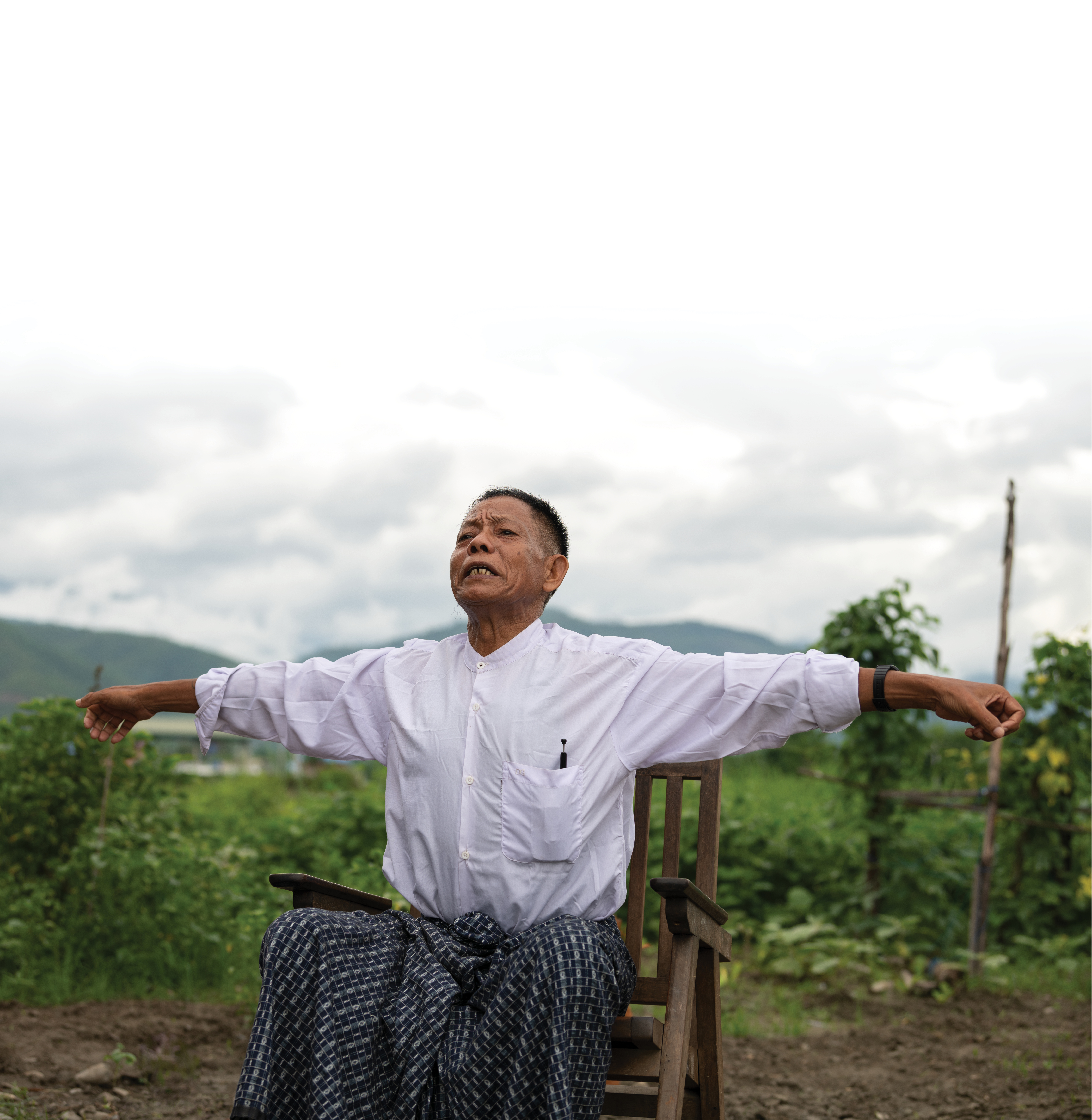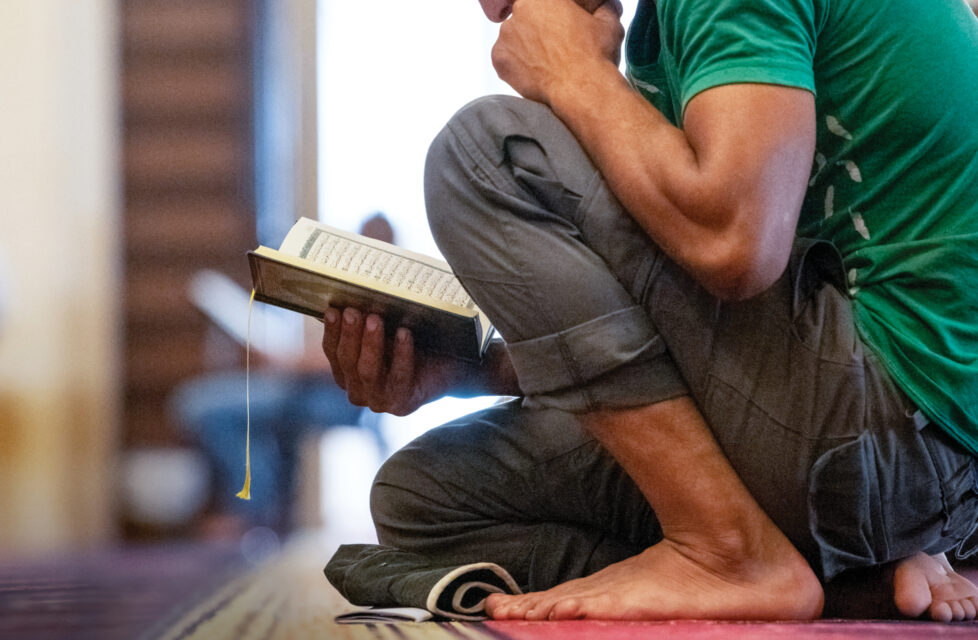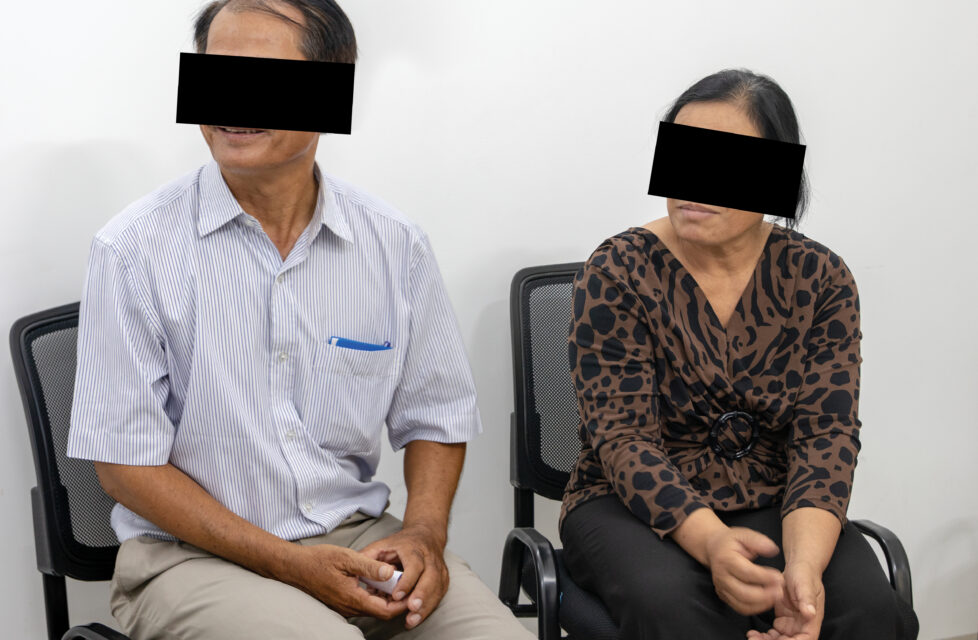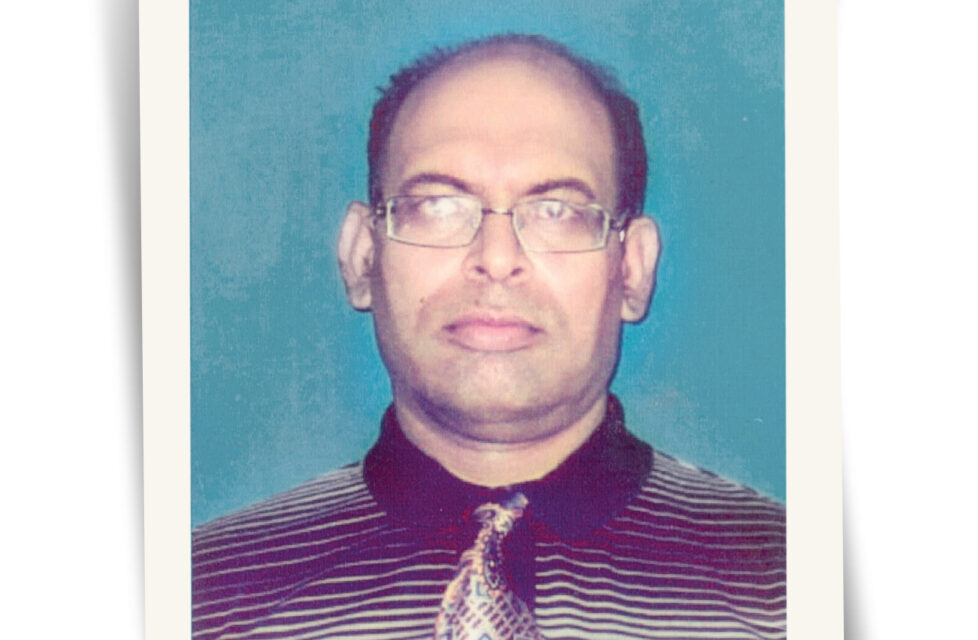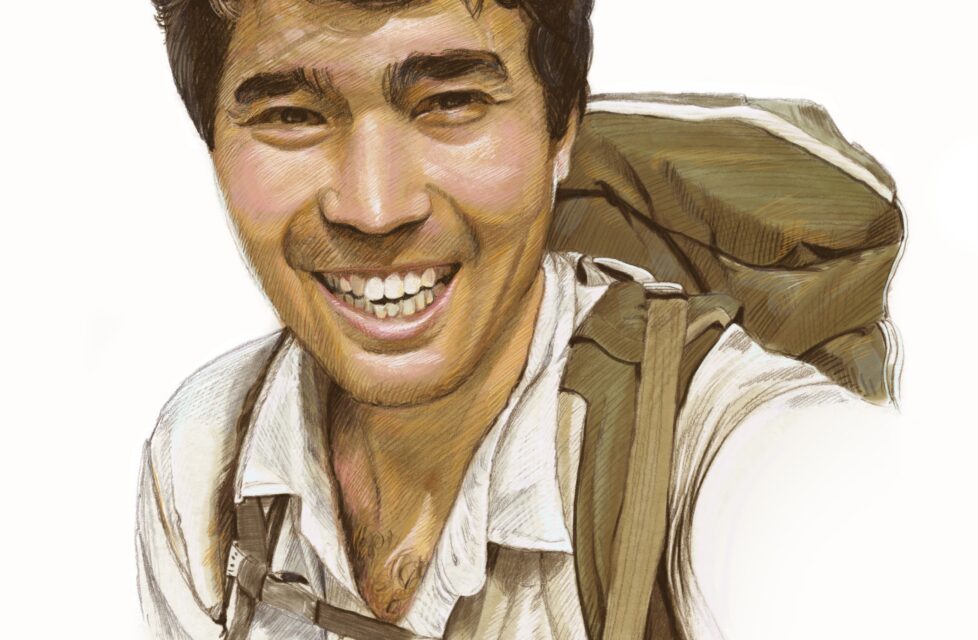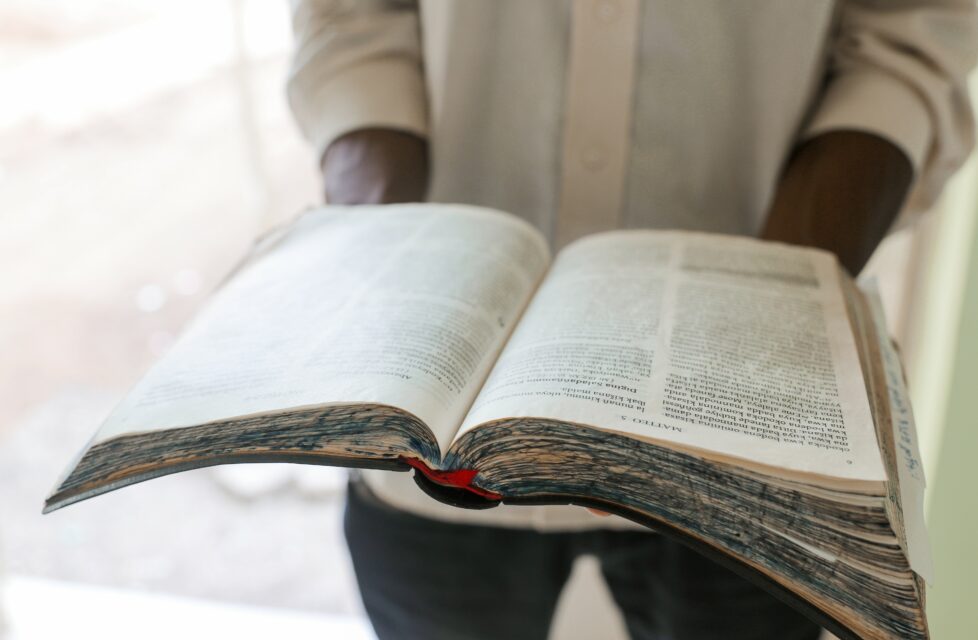When Pastor Arjun, a Christian convert from Hinduism, proposed to his wife, Radha, he made sure she knew what to expect. “I am a minister and have been attacked many times,” he told her. “In the future, you may be attacked. I may go to jail. Sometimes we will have food, sometimes we will not. This will be the life.” Radha accepted his proposal without flinching. “Live or die,” she replied, “I will live for Christ.” Since then, they have been forced to move three times. Arjun has been beaten numerous times and accused of forced conversions, while Radha has been personally threatened and watched Hindu radicals invade their church. When Radha’s parents began arranging a marriage for her when she was in the 12th grade, she made it clear that she wanted to marry a pastor. “I will not marry any other,” she told them. “Otherwise, I will not get married.” Radha wanted to be actively involved in ministry, and she knew marrying a pastor would be the best way to do that. “I had that burden,” she said. Because Arjun had been attacked so many times, Radha’s parents were initially hesitant to approve the marriage. But despite their
Read MoreKan and his wife, Maiah, host children of Christian workers in their home so the parents can continue their work without worrying that their children will be taken as soldiers or brides. After Kan completed seminary in 2009, a friend in Myanmar asked him a pointed question: “Could you and your wife take care of two boys?” The boys, ages 5 and 7, were children of new believers from separate families who were working in the fields. Their parents feared that since they were now Christians, rebel groups would take the boys for use as child soldiers. Families in areas where rebel groups are active are commonly expected to give up a child, and Christian families are often forced to give up all their children as a penalty for being Christians. At the beginning of this century, Myanmar was reported to have the highest number of child soldiers in the world. At that time, an estimated 20 percent of the country’s 350,000 soldiers were children. While boys are recruited by rebel groups and the national military, girls in rebel-held areas can be married off or trafficked into China. Kan prayed about how he and his wife could help the families.
Read MoreThe Sheikh Who Became an Evangelist The pastor said, “This is Sheikh Semere,” introducing his guest to the believers assembled in a concrete-block church in Ethiopia. “He was a persecutor, and one who wanted to burn churches. I brought him here so you can beat him,” the pastor said jokingly, “because the Bible says you will reap what you sow.” The congregation roared with laughter. Less than two years earlier, a Muslim mob had destroyed their community, killing two evangelists and destroying the homes of 22 Christian families. But instead of fleeing or retaliating, the Christians chose to remain in the area as witnesses for Christ. And when they rebuilt their homes, they painted them vibrant blues and pinks so everyone would recognize the houses rebuilt after the violence. Semere, the target of the pastor’s good-natured joke, represented the very people who had attacked them. As the pastor introduced Semere, he continued using the title the former Muslim had gained as an Islamic scholar. “God has given Sheikh Semere favor,” the pastor said, “and [the sheikh] has done far more after he believed in Christ than the evil he did when he was a persecutor. After he believed, the Muslims
Read MoreLike many Christians in northern Nigeria, Alice has suffered multiple attacks from Muslim extremists, but she is not disheartened because she knows that Christ told us His followers would suffer. Though it has been nine years since her husband was murdered by militant Islamic Fulani herdsmen, every time Alice Bulus hears about a new attack, she re-lives the pain of the day he died. “When I hear the sound of a gun, I panic,” Alice said. Alice and her family were asleep when men with covered faces stormed into their home around midnight on Jan. 13, 2011, in Nigeria’s Plateau state. After calling her husband by name, the men shot him as he opened the bedroom door. Alice, who recognized one of the attackers as a neighbor, tried to stop the bleeding as her husband lay crumpled on the floor and their five terrified children cried in the corner. When the Nigerian military arrived in their village about an hour later, they took Alice’s husband to the hospital. But it was too late; he died on the way to surgery. Crisis upon Crisis In Nigeria, they call it a crisis. Attacks by Boko Haram terrorists and nomadic Fulani militants are
Read MoreAfter zealously persecuting Christians for decades, a Myanmar Army officer made a mistake that led to a life-changing encounter with six imprisoned pastors. Khin Maung wanted to be part of something bigger than himself. After completing high school, he joined the Myanmar Army and quickly rose through the ranks, eventually reaching the level of lieutenant colonel. As an officer commanding his own battalion, he developed a reputation for brutality toward his soldiers, reserving his harshest treatment for Christians. Khin had learned to hate followers of Jesus at a young age. He was raised in a rigidly Buddhist, Burmese family, and two of his uncles were influential Buddhist monks. At age 11, he spent nine months as a novice, wearing the traditional maroon robe and living among adult monks at a local monastery. He was taught that Jesus was a disciple of the Buddha and that He was crucified for disobeying instructions forbidding Him from preaching. In addition, he was taught that when Jesus died, He became an evil spirit. “From that moment, I thought Christians were crazy,” he said. “I decided that I didn’t want to have anything to do with them.” Khin took every opportunity to publicly mock and
Read MoreWhy a former Islamic scholar is now providing a safe place for ex-Muslims to grow in their relationship with Christ When the first rock struck his back, Waleed turned and shouted, “Who did this?” Groups of young men loitering along the street stared blankly back at him, while shopkeepers avoided eye contact. Then, as Waleed turned and continued on his way, a barrage of stones began to rain down on him. “I was so scared,” he recalled, “so afraid.” Waleed ran for his life. Later, while assessing his cuts and bruises, he realized that his brothers at the mosque were no longer his brothers. He had pointed out too many contradictions in the Quran and had asked too many questions about Jesus that they couldn’t answer. Who was this Jesus mentioned 187 times, more than anyone else in the Quran? Becoming an Islamic Scholar An uncle in Waleed’s deeply Islamic family selected him at a young age to become an Islamic scholar. He grew so fluent in Arabic, the language of the Quran, that he received a four-year scholarship to an Islamic university in Mecca, Saudi Arabia, where he was expected to immerse himself in Islam before returning to his
Read MoreAlmost no one was in favor of Mai marrying Pastor Giang. Her family, who are communists, strongly opposed the marriage, as did local Communist Party officials and friends at the school where she worked. “My older brother is a policeman in the city and in a very high position in the province,” Mai explained, “and my two younger brothers are also policemen. They [forbade] me from marrying him.” But Mai chose to marry Pastor Giang against the wishes of family and friends, and she soon paid a price for it. When the Vietnamese government learned that she had married a pastor and later confirmed that she had also become a Christian, they fired her from her position as vice principal of the school. At first Mai worried about being unemployed, but Giang, who had himself experienced trouble finding jobs in the past, read her verses of Scripture and assured her of God’s provision. Soon Mai found a new purpose — serving the Lord alongside her husband. With Mai’s background in education and Giang’s experience in ministry, they began teaching children in their village how to write and speak Vietnamese. The children, who ranged in age from 6 to 17, were
Read MoreThe Bully Becomes the Beaten Paulus had no idea that the words of the man he was beating would be prophetic. As a devout Muslim working in law enforcement, he made it a point to preach Islam among Pakistan’s minority Christian community, even beating many Christians in an effort to coerce them to become Muslim. Then, one day Paulus met a pastor in a park. He discussed Islam with the man and tried to persuade him to accept what he considered the only true religion. But as a committed follower of Jesus Christ, the pastor told Paulus he could not become a Muslim. So, sticking to standard practice, Paulus violently attacked him. Between painful blows to the head, the pastor made eye contact with Paulus and said, “I am beaten for Jesus Christ, and one day you will also be beaten for Him.” Although the man’s words left an impression, Paulus would not understand what they meant until years later. Meeting Jesus Reading was a great passion of Paulus, and one day while browsing through his local book store, he curiously picked up and purchased a copy of an old book. Later, as he began to read the book, he
Read MoreIf all had gone according to John Allen Chau’s plan, we would never have known his name. He intended to remain invisible to the world whether he lived or died, caring only to be seen by the one who told His followers to “Go into all the world and proclaim the gospel to the whole creation.” But instead, in November 2018, news outlets around the world were running the story of a 26-year-old American man who had been killed trying to make contact with a remote tribe on North Sentinel Island, a tiny speck in the Bay of Bengal between India and Southeast Asia. Many news reports and opinion pieces implied that John had been foolish to contact a people group known to be violent toward outsiders. What they didn’t know was that John had prepared for years to reach the Sentinelese with the Good News of Jesus Christ. John chau’s Life of Preparation John spent almost a decade preparing to take the gospel to the Sentinelese, one of the last uncontacted people groups. His journey began in 2008, the year he turned 17, when he became what he described as “an apprentice to Jesus.” After taking his first missions
Read MoreSmuggling the Digital Word Al-Shabab militants came for Christian schoolteachers Philip Okumu and Daniel Wekesa in the middle of the night. They surrounded the men’s house in their small Kenyan village near the Somali border and then tossed a grenade through a window. As flames spread through the concrete-block structure, Philip and Daniel ran for the door and were shot to death as they exited the building. According to a group of Somali Christian leaders, the men were killed for sharing the gospel with their students. Although based in Somalia, al-Shabab terrorists move freely across the country’s borders with Kenya and Ethiopia in a region known as Greater Somalia, enforcing their harsh religious standards with brutal injustice. Sharing the gospel in this region is extremely dangerous. Neither the Somali nor Kenyan government has been able to control the Islamist group in this lawless border region, prompting the Kenyan government to urge non-Muslim government workers like Philip and Daniel to leave the area. The two Christian men chose to stay, however, because they knew the ethnically Somali children they taught would have no other way of hearing the gospel. Their love for the children and faithfulness to Christ cost them
Read More
